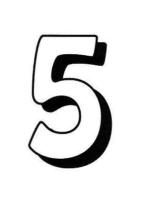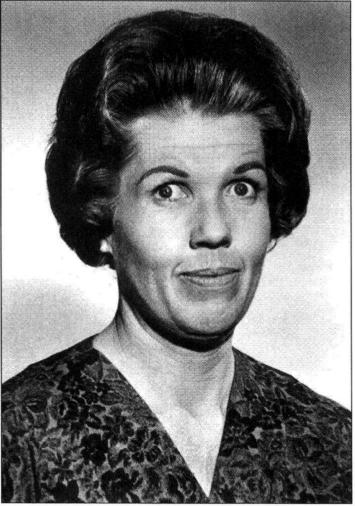Growing Up Brady: I Was a Teenage Greg, Special Collector's Edition (10 page)
Read Growing Up Brady: I Was a Teenage Greg, Special Collector's Edition Online
Authors: Barry Williams;Chris Kreski


It was a well-known fact in Hollywood that Sherwood
Schwartz was absolutely the worst writer working in
television. But that all changed one day when suddenly there showed up one writer who was even
worse. It was Lloyd, Sherwood's son. And of course
our problem was that we had both of them on "The
Brady Bunch. "
-Robert Reed
Robert Reed is the kind of actor who could perform
Hamlet, get booed off the stage, and say, "Hey, don't
blame me-I didn't write this shit. "
-floyd Schwartz
"What?" you gasp. "Dissension in the comfy, cozy, suburbantract Brady house?" The answer, quite bluntly, is uh-huh. From the
very beginning, two distinct and exclusively opposite camps were
set up. In one corner were Sherwood Schwartz and his son, Lloyd.
In the other was Dad Brady himself, Robert Reed. Their battles
became legendary at the Paramount complex, and a lot of the stories that will pop up in the pages to come won't make much sense
unless you've been briefed on the very real animosity that existed
between the camps almost from day one.
Actually, the seeds of war were sown even before day one.
Y'see, Robert Reed is an extremely accomplished actor. He
studied at Northwestern University and at London's Royal Academy of Dramatic Art, and he takes his work very seriously. Knowing
the man, you'd come to the conclusion that the last television project in the world he'd get involved with would be "The Brady
Bunch."
So how did it happen?
Robert had spent the better portion of 1967 appearing on
Broadway in Barefoot in the Park. When Paramount decided to try
and turn it into a TV series, he was invited to come to Hollywood
and play the lead. Smash cut forward. It's now six weeks later, and
Paramount has decided to dump the idea of turning Barefoot into
a sitcom. At that point, Robert Reed's inescapable life as a Brady
began.
I asked him to tell me how he became the legendary "man
named Brady," and his story went like this:
"Shortly after Paramount decided to kill Barefoot, Doug
Cramer"-then the vice-president of Paramount-"came to me
and asked if I'd like to speak with a producer named Sherwood
Schwartz about `The Bradley Brood"'-we still hadn't become
"The Brady Bunch"-"and I said `Sure.' So Sherwood and I met
over dinner in his office, and basically, he fooled me. You see,
Sherwood has this remarkable facility for attaching a sociological
concept to a movie or episodic project, but he hasn't the least
capability of being able to realize it. And once he hasn't realized
that sociological concept, he has even less capability for being able
to realize that he hasn't.
"When he discussed `The Brady Bunch' with me, it was all in
sociological terms. You know, there was `a need to discover these
figures in American life,' and all about `families put asunder,' and
blah blah blah, and how he'd gotten the idea for doing a show
about putting two of these families together, and that it would be
in a general comic context, but that it would also `represent American life to American people.' So I thought, `Well, gee, that sounds
pretty good to me,' and said, `Okay, get me a script and I'll be glad
to take a look.'
"And then the script came out, and I was absolutely horrified! I
couldn't believe what I was reading! I mean, it's `Gilligan' all over
again, with just as much inanity, and I quickly said `NO!'
"Anyway, the powers that be at the studio and Sherwood and I
finally came to a meeting of the minds wherein I did an about-face
and accepted the show, basically because there wasn't anything
else for me to do. And honestly, my private feeling was that it'll
never get off the ground-take the money and go.
"So we did the pilot, and of course it was terrible, so I was absolutely stunned when it got picked up. And even then, I thought, `It
can't last more than thirteen weeks.' And it went on forever, which
shows you what I know."
Wanting to present both sides fairly, I asked Sherwood
Schwartz for his spin on the same story. Here goes:
"The only reason Bob got a screen test in the first place was that my personal choice to play Mike Brady was rejected by the network, because they'd never heard of him. His name was Gene
Hackman. This was a couple of years before The French Connection hit it so big. They said, `Who the hell is Gene Hackman?' and I
said, `He's a terrific actor who's got a nice rough edge to him, and I
think he could handle the part really well.' They said, `Forget itwe never heard of him.'
"So we started scouting around and tried out a couple of actors,
Robert Reed included. We did a screen test, and Bob was good,
but he was absolutely dead set against going into a show where
he'd play the dad to six kids, because it would ruin him as a
young-leading-man type. And on top of that, he hated the pilot
script, basically because he doesn't do comedy well and has no
sense of humor. So when we got picked up, he went into the
series kicking and screaming all the way.
"That's why throughout the series he always seemed to have a
black cloud over him. He just plain didn't want to do it. And as the
life of the series got longer, he wanted to be there even less. In
fact, there were several episodes that we had to write Bob out of
completely, because he was being such an enormous pain in the
ass."
We'll get into all of that later, but for now you've got the basics.
Robert Reed was signed to play Mike Brady, Sherwood Schwartz
had found his leading man, and even before we'd started production on our first episode, a feud was brewing.
With Mike Brady in place, Sherwood Schwartz set out looking for
the perfect Carol, and he found her almost immediately. Her name
was Joyce Bulifant. With that task accomplished, it was time to cast
the role of Alice, and Sherwood's obvious choice was ... Monte Margetts. His second pick however, was ... Kathleen Freeman.
Huh?
It's true; and though today it seems impossible to imagine anybody besides Florence Henderson and Ann B. Davis in those roles,
neither one was a first choice.
Couch potatoes everywhere will immediately recognize Joyce
Bulifant from "The Mary Tyler Moore Show," where she played the
ever-perky Marie Slaughter, wife to Murray. She was also the longtime bottom-left celebrity on the world's worst-ever game show,
"Match Game."
Monte Margetts had roles in a couple of obscure 1950s sitcoms,
and has since retired from the acting world. Kathleen Freeman, on
the other hand is an absolutely brilliant comedic character actress
who spent most of the 1960s yelling at Jerry Lewis in films like The
Disorderly Orderly. One look at her picture and you'll know
exactly who I'm talking about.

Kathleen "could'a been
'Alice' " Freeman. (Courtesy Kathleen Freeman(
So the real question to be answered here is: How did Joyce and
Kathleen become Florence and Ann?
The answer: It wasn't easy.
Florence was always supposed to audition for the role of Carol,
but when it came time to actually shoot the screen tests, she was
performing her nightclub act. Up until she became Carol Brady,
Florence was primarily known as a singer, and was working at a
club in Texas. Unable to get herself to L.A. in time, Florence was
forced to politely decline Sherwood Schwartz's request that she
audition for the role of Carol. The part was offered to Joyce Bulifant, and that was that.
Once Joyce was in place, Sherwood was able to cast his Alice.
He felt that Joyce had a naturally funny personality and that she'd
play very well against a strong "straight man" type. Kathleen Freeman fit that bill perfectly and became Alice.
Meanwhile, Florence was rehearsing her act in Texas when an
idea came to her: she could jet into L.A., get a cab to speed over to
the Paramount lot, screen-test for "The Brady Bunch," speed back
to LAX, and jet back to Texas, all in time for her nine o'clock nightclub performance. She called Sherwood back, explained her brainstorm, and asked if she could still squeeze in a screen test. Sherwood said sure, and twenty-four hours later she would have her
chance to play Carol. Simple, right?
Wrong!, Florence's plane was delayed, she got stuck in traffic,
and she didn't even get to the Paramount studios until she was
almost two hours late. Desperate to make up some time, Florence
ran in a mad rush toward the nearest available makeup man. Running from set to set, she finally found one on the set of-"Star
Trek"! He agreed to do her makeup, but Florence's troubles
weren't over yet.
"I was sitting in a makeup chair between William Shatner,
Leonard Nimoy, and like six or eight space monsters. None of
them had any idea who I was or made any attempt to be friendly,
which really bugged me. Anyway, this makeup guy proceeded to
put a makeup on me that was absolutely unbelievable. Put it this
way: Mr. Spock ended up looking more attractive than I did. It was
awful! I wound up with eyelashes that were like three inches long!
"Mortified, I went back to the Brady soundstage and I said to
Sherwood, `Look, I just want you to know that I think this makeup
is all wrong for Carol Brady, or any other living human creature. So
remember, when you see these eyelashes flapping around in the
breeze, I think they look stupid too.' And Sherwood laughed.
Maybe I should thank that terrible makeup man, because in a way,
his botch job helped me get the part."
Despite the Mary Kay nightmare, Florence's screen test was a
smash, and Sherwood had a new Carol. However, he also had a
new problem: namely, two "straight men" in the same kitchen.
Sherwood knew that Carol and Alice would be sharing a lot of
scenes together in the Brady kitchen, but he felt that Florence
wasn't as naturally funny as Joyce. So Sherwood said maybe we
should let Alice be the funny one and remembered Ann B. Davis,
whom he calls "genuinely, immediately, and automatically funny."
The chips started falling into place.
Incidentally, Florence did make it back to Texas in time for her
nine o'clock show, and it went smoothly. But the very next morning she had to once again pack up and fly out to L.A.-this time, to
start shooting the pilot for "The Brady Bunch."
Lastly, rather than simply blow off the rest of her nightclub
engagement, Florence made a deal with the hotel's owner. He
agreed to let her go to Hollywood and shoot her pilot and she
agreed to return at a later date. They shook on it, and a year later,
Florence Henderson-now a genuine TV star-went back and
completed her run. She was a smash.